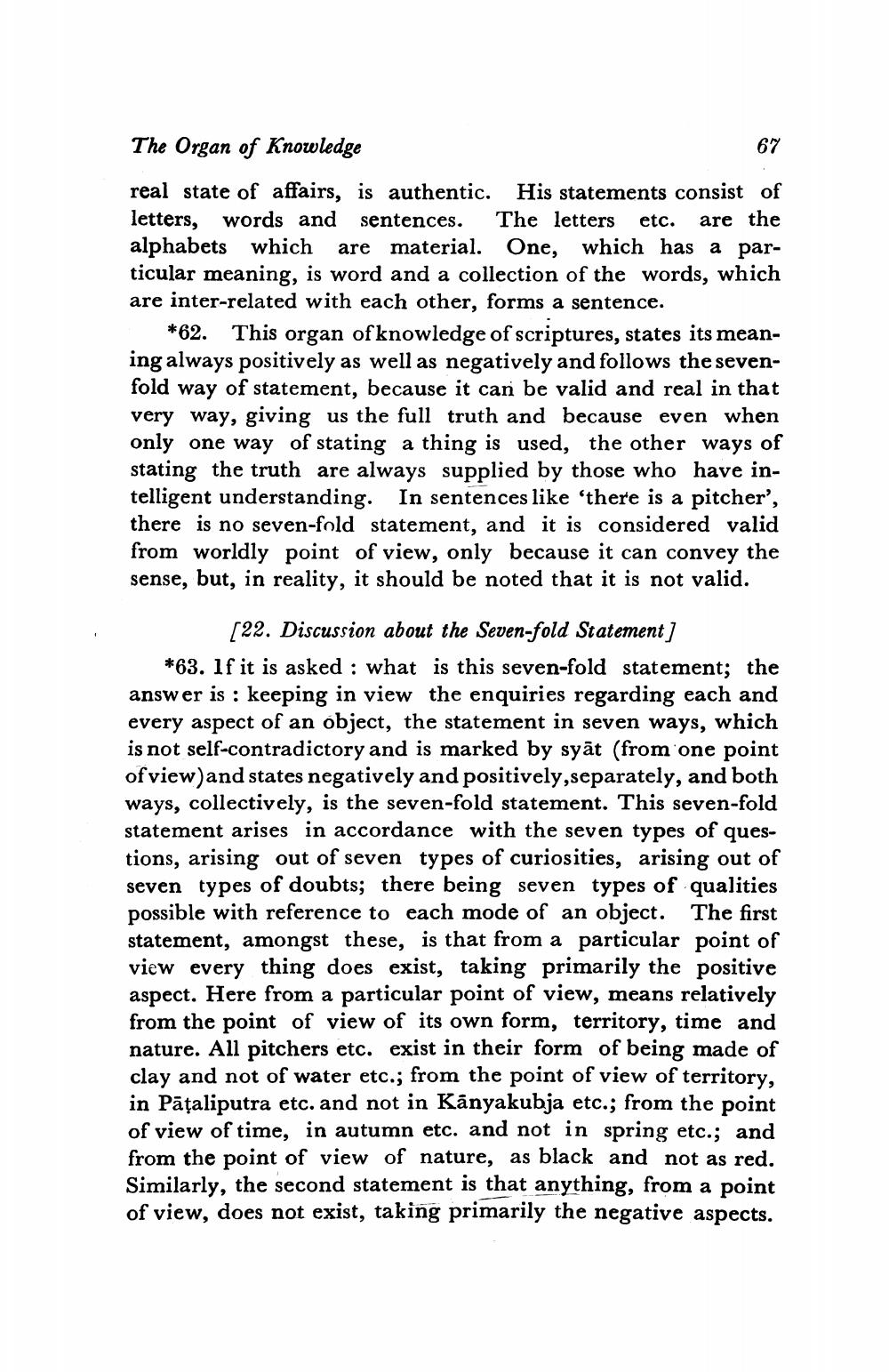________________
The Organ of Knowledge real state of affairs, is authentic. His statements consist of letters, words and sentences. The letters etc. are the alphabets which are material. One, which has a particular meaning, is word and a collection of the words, which are inter-related with each other, forms a sentence.
*62. This organ of knowledge of scriptures, states its meaning always positively as well as negatively and follows the sevenfold way of statement, because it can be valid and real in that very way, giving us the full truth and because even when only one way of stating a thing is used, the other ways of stating the truth are always supplied by those who have intelligent understanding. In sentences like 'there is a pitcher', there is no seven-fold statement, and it is considered valid from worldly point of view, only because it can convey the sense, but, in reality, it should be noted that it is not valid.
[22. Discussion about the Seven-fold Statement] *63. If it is asked : what is this seven-fold statement; the answer is : keeping in view the enquiries regarding each and every aspect of an object, the statement in seven ways, which is not self-contradictory and is marked by syāt (from one point of view)and states negatively and positively,separately, and both ways, collectively, is the seven-fold statement. This seven-fold statement arises in accordance with the seven types of questions, arising out of seven types of curiosities, arising out of seven types of doubts; there being seven types of qualities possible with reference to each mode of an object. The first statement, amongst these, is that from a particular point of view everything does exist, taking primarily the positive aspect. Here from a particular point of view, means relatively from the point of view of its own form, territory, time and nature. All pitchers etc. exist in their form of being made of clay and not of water etc.; from the point of view of territory, in Pataliputra etc. and not in Kanyakubja etc.; from the point of view of time, in autumn etc. and not in spring etc.; and from the point of view of nature, as black and not as red. Similarly, the second statement is that anything, from a point of view, does not exist, taking primarily the negative aspects.




